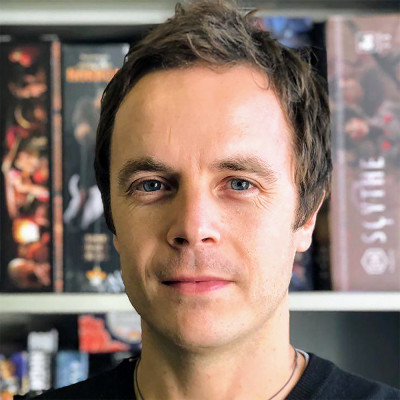James York
Tokyo Denki University
Co-chair of the JALTCALL2020 conference Co-editor of Ludic Language Pedagogy

Sessions
Engaging with the world: Reddit in the university classroom
This presentation introduces a pedagogical intervention designed to promote university-level students to participate in communities of English speakers from around the world using online affinity spaces such as those found on Reddit, Twitter, and online forums. Using successful and not-so-successful examples of student work collected through the project, the aim of the presentation is to provide practical advice for other educators who may are interested in using “the digital wilds” of the Internet in their own context. In keeping with the theme of the conference, I will introduce three key elements for translating theory into practice: methodology, materials and mediation. The methodology for this project was inspired by progressive pedagogical approaches including the connected learning manifesto, bridging activities, social pedagogies, and situated learning. Following, I will introduce the materials created as part of this project which were designed to stimulate thought, promote action, and augment a lack of teacher-student talk time which is a common issue with large class sizes. Finally, I will present a detailed analysis of the critical role teacher mediation plays in supporting student progress. Although student expertise is paramount in determining the success of a participation project, teachers need pedagogic, content, and technological knowledge, particularly awareness of how to use Reddit, as well as knowledge regarding memes and internet slang.
Developing a language learning system that appropriates the affordances of VR
This presentation concerns the current iteration of a VR system designed to promote speaking skills as participants carry out collaborative tasks. In a former study, a simpler system was used to explore the effect of modality on learners’ foreign language anxiety (FLA) where results suggested that participants anxiety was statistically significantly lower in the VR environment compared to video-chat. However, of three key affordances—presence, interactivity, and autonomy—the previous system only focused on presence. The current system also features an interactive component and was used in a comparative study against the previous (presence-only) system. The research question was: does more-fully utilizing the affordances of VR lower or increase students’ FLA? In a counterbalanced design, 30 participants (15 pairs) completed a spot-the-difference task in two different VR domains: interactive-VR and non-interactive-VR. Results of a post-experimental questionnaire suggested that there was no difference in participants’ FLA for the two domains. However, a significant difference was found in terms of ease of communication and enjoyment which favoured the interactive-VR mode. Additionally, compared to predictions that the interactive task would be more cognitively demanding, it was considered simpler than the non-interactive task by the participants. This suggests that using more of the affordances of VR by increasing interactivity further may make the embodied experience more life-like and therefore increase opportunities for learning. This presentation introduces the system, pedagogical implications, and future research directions.
The effect of modality on oral task performance in voice, video and VR-based environments
Synchronous computer-mediated communication (SCMC) is a topic of great interest in CALL literature where research has investigated the effectiveness of SCMC compared to traditional face-to-face instruction. However, there are few studies that investigate the intrinsic differences in SCMC modes. At the JALT CALL 2018 conference, we introduced research which assessed the anxiety-reducing affordances of three SCMC modes. This year we present results of a follow-up study which focused on the effect of SCMC modality on learners’ speaking performance. 30 participants (15 pairs) completed a spot-the-difference task within three different SCMC modes: voice, video and Virtual Reality (VR). Using the complexity, accuracy and fluency (CAF) model, participants’ oral complexity, accuracy and fluency were analyzed. Results showed that the voice mode promoted the highest structural complexity, however, the VR mode promoted the highest lexical complexity. Modality did not have a significant effect on accuracy. Finally, participants produced the most fluent output when completing tasks in the video mode. The results suggest that different modes of communication can be used to focus on different skill development. Practitioners must also consider how each modality affects learner anxiety and choose the most appropriate system for their students. This presentation introduces the VR system, a detailed analysis of results, pedagogical implications, and future research directions.
Opening Ceremony
Gary and James will be giving advice on how to get the most out of JALTCALL2020 and talk about the challenges of setting up the conference.
Closing Forum
A discussion of where we move on from here. Scheduled to finish at 17:15 but may run over.
Lunch + Breakout Rooms
A place to relax, make new friends and discuss ideas
Lunch + Breakout rooms
Relax meet new people and computer with them